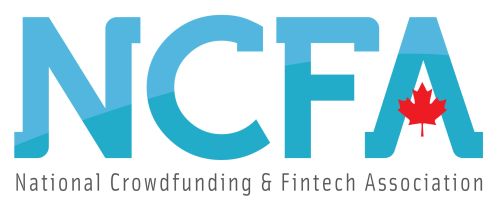Kramer Levin | Jan 23, 2023

Image: Unsplash/Milad Fakurian
As the applications for NFTs grow, the legal considerations expand, particularly when the NFTs are used in ways that touch on multiple areas of the law.
- Creative work NFTs: NFTs are associated with a particular work, be it an image, video, music, or writing (currently the most popular use case)
- The most typical legal issues with these NFTs involve contract law and IP licensing in copyrights and trademarks.
- Any rights to the copyrighted art must be sold or explicitly licensed to the NFT purchaser to be properly conveyed. For example, there may be issues on what rights are provided to the person who holds the NFT, including whether they can commercially exploit the art and, if so, what limitations are placed on this usage.
- Failure to notify a purchaser of what rights they are obtaining can lead to confusion because purchasers of NFTs often assume they are buying full ownership the actual artwork and can do what they want with them, such as exploit the artwork commercially.
- A new and rapidly expanding consideration is when an NFT is generated in whole or part by artificial intelligence (AI). There may also be the layering of issues, such as when AI is fed a copyrighted piece or pieces of work to generate new works that alter, expand or build upon the work it was fed.
- Another consideration that can arise under some uses for NFTs is if they are securities, meaning that they would be regulated by the Securities and Exchange Commission (SEC) if sold to customers in the U.S.
See: Aftermath Islands Metaverse Launches Events Pavilion with Over 1.1 Million Player-Generated Resource Pack NFTs
- NFTs for Metaverse and gaming: For example, an NFT could be associated with having the ability to unlock the use of a particular character in a game. Or it could be used as part of an inventory system to identify the character’s equipment, where a particular set of armor is associated with a corresponding NFT. NFTs can also be sold in random “packs” similar to trading cards or can be associated with ownership of a particular plot of virtual land within that particular world.
- NFT collectibles, fantasy sports and gambling. In addition to the legal considerations discussed above, this type of use that provides prizes must consider gambling and related contest and sweepstake laws, which are often regulated differently state by state. These factors must be considered specific to what is provided with the NFT at issue and the jurisdiction(s) over the purchase.
- NFTs linked to real-world assets: NFTs have also become linked to real-world physical assets and signify ownership or some right associated with that asset. Instead of keeping physical records on real property in a city hall archive as the definitive record of ownership, this information could be recorded on the blockchain. In this manner, it could be easily searched and verified.
- The ability to transfer ownership rights in real-world physical assets already has an extensive legal background. These include issues related to contract law, real estate law, tax compliance, the Uniform Commercial Code (UCC), etc. For example, real estate has its own unique body of law governing, for example, how to record and transfer property. Any usage of NFTs for real property would be required to navigate these laws in addition to those generally governing NFTs.
See: After you die what happens to your digital assets and NFTs?
- NFTs and identity: there are limits to what can be done without having a transaction tied to a particular real-life person or at least some measure of a user’s reputation.
- For example, the above scenario of a DeFi loan is based on what can be locked in as collateral on the blockchain. It does not consider other off-chain assets that may support the borrower’s creditworthiness or that the borrower had taken out loans before and always paid them back. In other instances, users should be verified for anti-money laundering (AML) purposes.
Continue to the full article –> here
 The National Crowdfunding & Fintech Association (NCFA Canada) is a financial innovation ecosystem that provides education, market intelligence, industry stewardship, networking and funding opportunities and services to thousands of community members and works closely with industry, government, partners and affiliates to create a vibrant and innovative fintech and funding industry in Canada. Decentralized and distributed, NCFA is engaged with global stakeholders and helps incubate projects and investment in fintech, alternative finance, crowdfunding, peer-to-peer finance, payments, digital assets and tokens, blockchain, cryptocurrency, regtech, and insurtech sectors. Join Canada’s Fintech & Funding Community today FREE! Or become a contributing member and get perks. For more information, please visit: www.ncfacanada.org
The National Crowdfunding & Fintech Association (NCFA Canada) is a financial innovation ecosystem that provides education, market intelligence, industry stewardship, networking and funding opportunities and services to thousands of community members and works closely with industry, government, partners and affiliates to create a vibrant and innovative fintech and funding industry in Canada. Decentralized and distributed, NCFA is engaged with global stakeholders and helps incubate projects and investment in fintech, alternative finance, crowdfunding, peer-to-peer finance, payments, digital assets and tokens, blockchain, cryptocurrency, regtech, and insurtech sectors. Join Canada’s Fintech & Funding Community today FREE! Or become a contributing member and get perks. For more information, please visit: www.ncfacanada.org
Related Posts
- SEO Powered Content & PR Distribution. Get Amplified Today.
- Platoblockchain. Web3 Metaverse Intelligence. Knowledge Amplified. Access Here.
- Source: https://ncfacanada.org/nft-use-cases-are-establishing-new-legal-frontiers/



